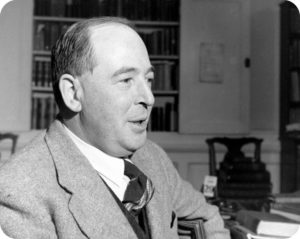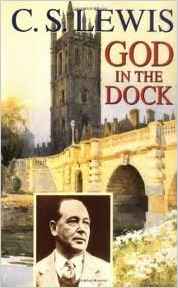 C. S. Lewis’s writings have been credited with leading many to the Christian faith and with strengthening the faith of countless others. He assumed the mantle of apologist and evangelist primarily because he saw a decided lack of intelligent explainers of Christian truths.
C. S. Lewis’s writings have been credited with leading many to the Christian faith and with strengthening the faith of countless others. He assumed the mantle of apologist and evangelist primarily because he saw a decided lack of intelligent explainers of Christian truths.
Yet he was criticized by some. Oxford colleagues were miffed that he was stepping out of his academic field to write about Christianity, which is one reason why he was denied promotion during his tenure there.
 Another critic, who surfaced in 1958, was Norman Pittenger, an American Anglican priest and theologican, who wrote that Lewis was too simplistic in his presentation of Christian faith. At the time he criticized Lewis, Pittenger was Chairman of the Theological Commission of the World Council of Churches.
Another critic, who surfaced in 1958, was Norman Pittenger, an American Anglican priest and theologican, who wrote that Lewis was too simplistic in his presentation of Christian faith. At the time he criticized Lewis, Pittenger was Chairman of the Theological Commission of the World Council of Churches.
The critique appeared in the theologically liberal magazine The Christian Century. Due to Pittenger’s prominence, Lewis felt he had to pen a defense of his reason for being an apologist and of his particular approach in presenting what Christianity was all about—a defense that The Christian Century published and which now appears in the essay collection God in the Dock and titled “A Rejoinder to Dr. Pittenger.”
Why did Lewis undertake the work of apologist/evangelist?
When I began, Christianity came before the great mass of my unbelieving fellow-countrymen either in the highly emotional form offered by revivalists or in the unintelligible language of highly cultured clergymen. Most men were reached by neither.
My task was therefore simply that of a translator—one turning Christian doctrine, or what he believed to be such, into the vernacular, into language that unscholarly people would attend to and could understand.
First and foremost, Lewis wanted people to be drawn to the truth; for that to happen, they had to grasp it and why it was important. The Pittenger approach, he argued, was so rich in “ambiguities” that it was “worse than useless.” It was so nuanced, so “sitting on the fence,” that people would suspect they were being tricked.
 Lewis, in genuine humility, was willing to concede he might not be perfect in his own explanations and style:
Lewis, in genuine humility, was willing to concede he might not be perfect in his own explanations and style:
I may have made theological errors. My manner may have been defective. Others may do better hereafter. I am ready, if I am young enough, to learn.
Dr. Pittenger would be a more helpful critic if he advised a cure as well as asserting many diseases. How does he himself do such work? What methods, and with what success, does he employ when he is trying to convert the great mass of storekeepers, lawyers, realtors, morticians, policemen and artisans who surround him in his own city?
Lewis undoubtedly suspected that Pittenger wasn’t truly engaged in trying to interact with those types of people at all. And what of the “gospel” of Pittenger? He became one of the first “Christian” leaders who argued for the acceptance of homosexual relations among Christians. Later, he admitted to his own homosexuality.
This is a defender of the faith?
Lewis concludes his rejoinder to Pittenger with these pointed words:
One thing at least is sure. If the real theologians had tackled this laborious work of translation about a hundred years ago, when they began to lose touch with the people (for whom Christ died), there would have been no place for me.
But because they did lose touch, Lewis stepped into the gap. Many thousands are eternally grateful that he did.
